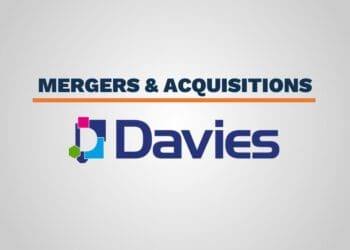Results reveal that companies anticipate challenges to operationalize changes while acknowledging opportunity for business benefit
- Only 27 percent believe they are on track to meet critical milestones; top risks include systems challenges, difficulty collecting required data, insufficient people resources and challenges interpreting the standard’s technical requirements
- 63 percent say lease accounting changes can deliver business transformation
- 68 percent plan systems changes, with 40 percent who are moving to a new system reporting it will take nine months or more; only 19 percent say it will take less than six months
- Strong coordination among finance, corporate real estate, procurement, IT, tax and treasury will likely be required
New York (June 27, 2017) – Most companies anticipate challenges to operationalize the required changes to comply with the new lease accounting standard, which will bring onto the balance sheet operating leases for assets such as real estate and transportation, IT and manufacturing equipment. According to the recently released EY Lease Accounting Survey of CFOs and CIOs, only 27 percent are confident that their companies are on track to meet critical milestones. However, 63 percent acknowledge that these changes are an opportunity to deliver business transformation, with process re-engineering, lease cost reduction and tax efficiency topping the list of benefits.
More than half (51 percent) cite systems challenges as the greatest risk to meeting the deadline. Additional obstacles are difficulty collecting the required data (46 percent), insufficient allocation of people resources (46 percent) and challenges interpreting the standard’s technical requirements (44 percent). Surprisingly, 26 percent say they are not yet clear who is responsible for the project.
Identifying and implementing lease administration systems with lease accounting functionality is a significant part of the effort. Sixty-eight percent say they plan systems changes, with 40 percent of those respondents reporting it will take nine months or more to implement. Fewer than 20 percent say it will take less than six months. Almost 59 percent of firms surveyed are planning to implement a dedicated on-premise technology system, while 34 percent plan a cloud-based technology solution. Just 7 percent will use a manual, spreadsheet-based approach. Finance and IT are aligned on the challenges, both saying that assessing and making systems changes is very or somewhat difficult.
Anastasia Economos, EY Americas Accounting Change Leader for Leases, says, “Companies want both compliance and transformation. The survey results show that despite the challenges, lease accounting changes offer an opportunity to upgrade legacy IT systems and can help CIOs position their function at the forefront of business change. The majority of CFOs and CIOs see how these changes can align with broader goals and ambitions. What will likely bring success is strong alignment across the organization among finance, corporate real estate, procurement, IT, tax and treasury, as well as with internal and external audit teams.”
EY surveyed 300 finance and IT leaders from U.S.-headquartered public companies across multiple industries, with annual revenues ranging from $1 billion to more than $10 billion, in March 2017 to highlight the key challenges and opportunities associated with lease accounting standard changes.
Half or more of the companies expect implementing the required changes to be difficult. The top challenges named as very difficult are:
- Developing new accounting policies and procedures (19 percent)
- Gathering robust data and missing information (19 percent)
- Assessing and making systems changes (19 percent)
- Designing new process changes (18 percent)
- Managing tax considerations and impacts (16 percent)
- Developing new controls (13 percent)
Economos continues, “Because these lease accounting changes become effective for public companies in 2019, organizations can apply lessons learned implementing the revenue recognition changes. Importantly, enterprises should identify their business requirements for lease administration and accounting in order to evaluate system options as early as possible, ensure alignment across the organization and establish measures that drive ROI. Thinking strategically as well as operationally will likely drive not only compliance but also bigger business benefits.”
About EY
EY is a global leader in assurance, tax, transaction and advisory services. The insights and quality services we deliver help build trust and confidence in the capital markets and in economies the world over. We develop outstanding leaders who team to deliver on our promises to all of our stakeholders. In so doing, we play a critical role in building a better working world for our people, for our clients and for our communities.
EY refers to the global organization, and may refer to one or more, of the member firms of Ernst & Young Global Limited, each of which is a separate legal entity. Ernst & Young Global Limited, a U.K. company limited by guarantee, does not provide services to clients. For more information about our organization, please visit ey.com.
This news release has been issued by Ernst & Young LLP, a member of the global EY organization that provides services to clients in the U.S.














